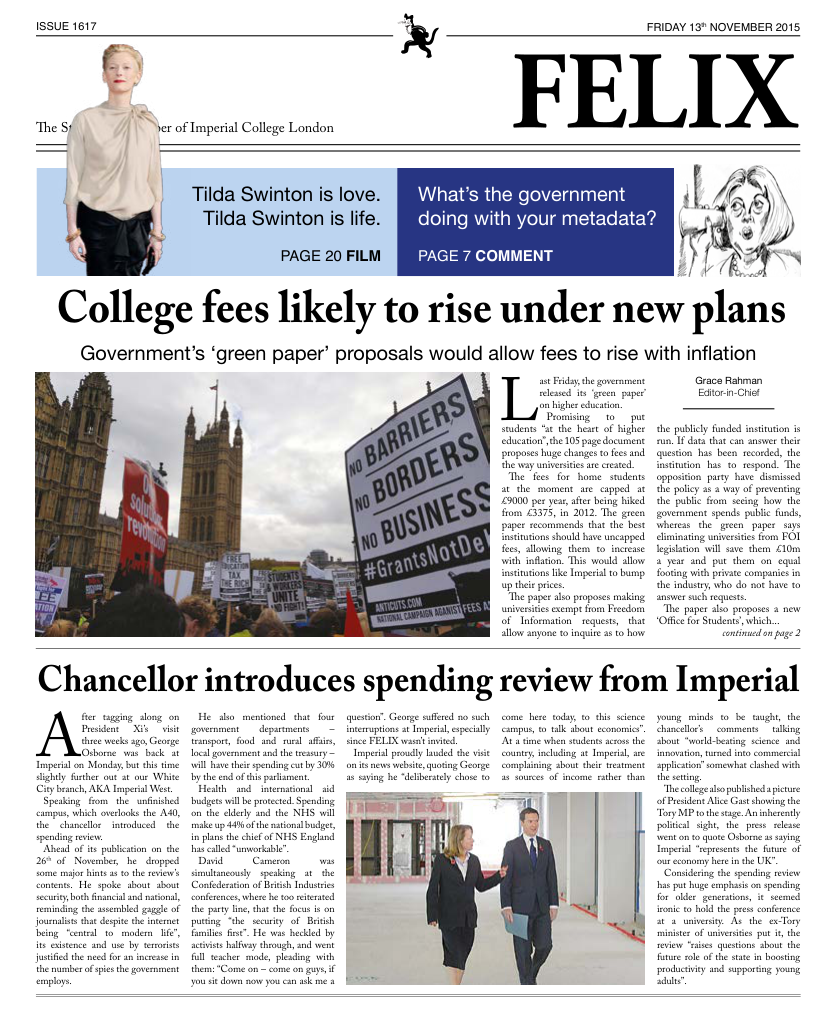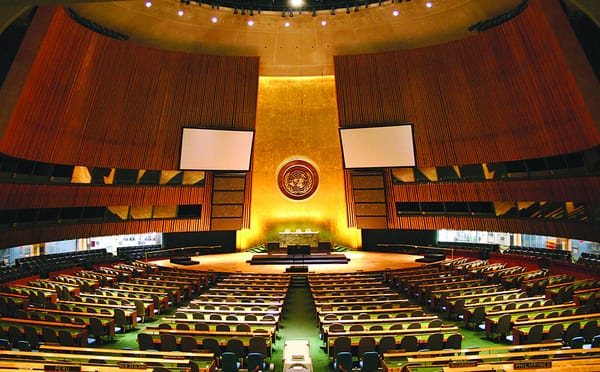What can science policy do for you?
A call to arms from the LSFP. Shape science policy, shape the world

In a university populated by scientists, it can be very easy to lose sight of the world outside. Of course, science is important – we know that; we are studying it. But how many people outside of the science bubble really appreciate what science is telling us, and what it can say on some of the big issues that influence our lives?
Politicians are a key group outside the science world that it is important for us to engage with. Scientists could, and in some cases do, know how to feed, house and clothe the world – and how to stop it from imploding - but if this information never gets to policy makers, very little can be done to ensure that science has an impact on people’s lives.
A major issue is that the written world of science is difficult for non-scientists to engage in. There are hundreds of peer-reviewed journals, all containing copious amounts of highly technical information, coded in highly technical language. This can be challenging enough even for people with a background in science, and is hugely off-putting for non-scientists. Where should they start reading? Who do they trust when there is a conflict of evidence? How applicable is this knowledge?
To ensure politicians can understand the fields of science relevant to their work, policy briefings are written. The most well know of these are POST Notes, which, as the name suggests, are written by the Parliamentary Office for Science and Technology (POST), and are dense summaries of a field (such as ‘Precision Farming’ or ‘Trends in Energy’), noting where evidence is more certain, where conflicts lie, and where the field is currently developing. Whilst these are supposedly neutral in content, as they are produced by the government, other briefings can be much more targeted.
Science-focused think tanks and lobby groups also summarise evidence from the literature, but they use it to make suggestions for future policy choices. The papers produced by these institutes are presented to policy makers, and become part of the body of knowledge they use to make decisions. One such thinktank is based here at Imperial – the student-run London Forum for Science and Policy, which anyone can get involved with. They have already published a number of papers, and even presented at Brussels.
Interested in getting involved with a thinktank, or want to learn more? Come along to the launch of LFSP’s most recent paper, Improving the Visibility of Women in STEM, at 6.30pm today in the Pippard Lecture Theatre, or like LFSP on Facebook. We are looking for enthusiastic people to get involved in writing policy papers, so if you are interested in what you have just read, get in touch!









